SOCIAL MEDIA MARKETING: ROADMAP TO BUILD A PERFECT STRATEGY
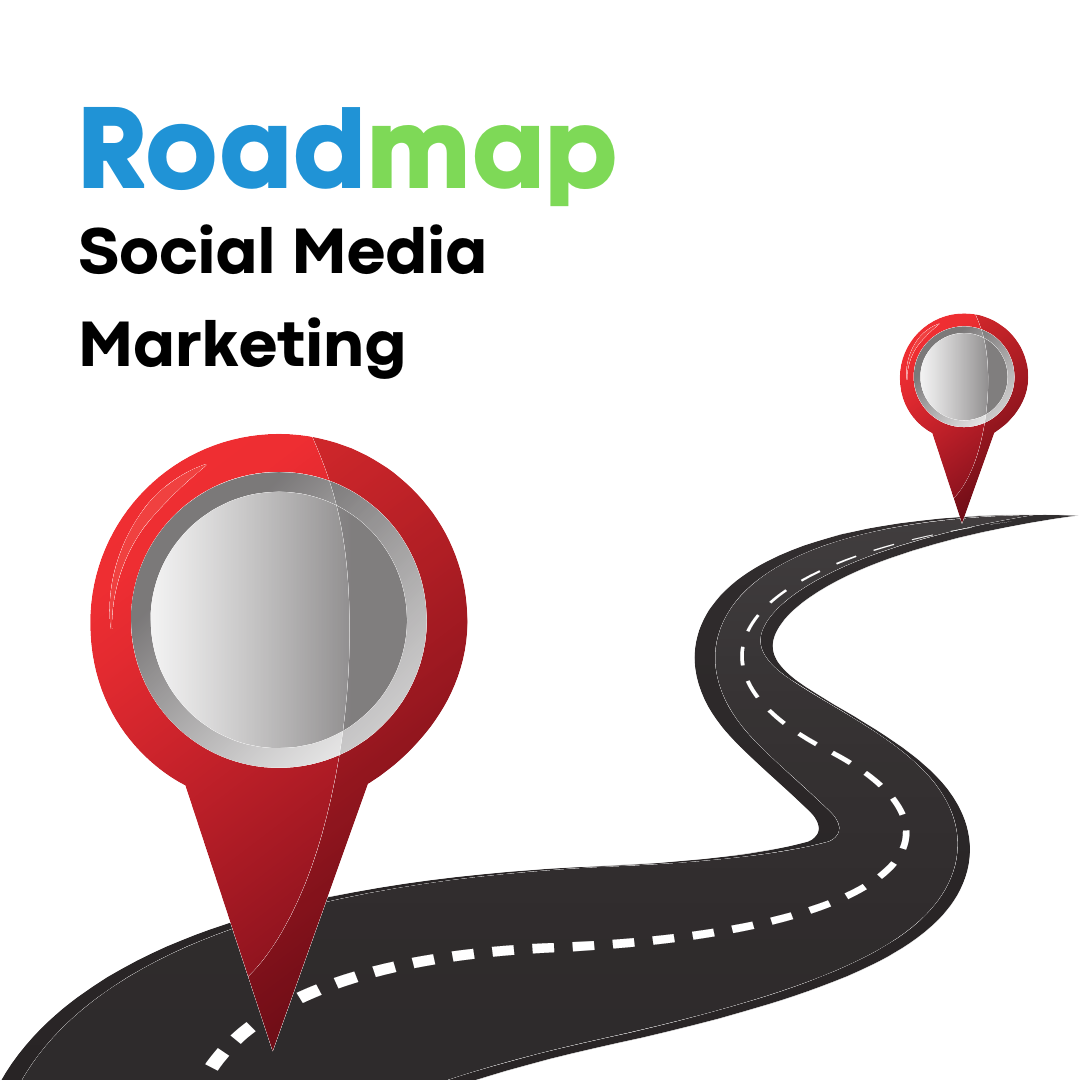
by Abhay Raj
A roadmap to Build a Perfect Social Media Marketing Planning lays out the steps you need to take to reach your destination, and the same is true for social media marketing. In this guide, we’ll provide you with a roadmap to build a social media marketing strategy that drives results for your business. Whether you’re new to social media marketing or looking to revamp your existing strategy, this guide will provide you with a clear path to success.
Looking to refine your social media strategies?
Good! Let’s start working on it.
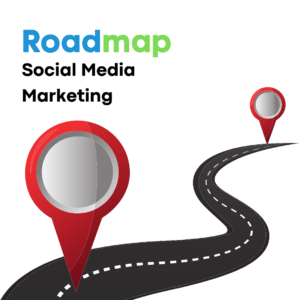

Social media has become a crucial aspect of digital marketing for businesses today. With 4.89 billion active social media users, it has become a platform for businesses to reach and connect with their target audience. So it is very important to have a perfect social media marketing strategy that can give you better ROI and fulfill all your business needs.
We will create a step-by-step ideal roadmap covering these key points
- What is Social Media Marketing?
- Set Goals for Your Business
- Research your Target audience and appropriate platforms
- Analyze the competition and competitors’ activities
- Create engaging content for your Social handles
- Establish your key performance indicators
- Create a content strategy and schedule it
- Monitor and Measure Success
What is Social Media Marketing?
Basically, promoting and selling any brand’s Product or services with the help of Social media platforms such as Instagram, Facebook, and Twitter is called Social Media Marketing. If you are launching a new product or service then social media marketing is the best way to promote it and improve its visibility in the market. This form of marketing requires you to use social media management skills and tools. We can easily promote our products or services through paid activities and we can target the right audience.
Set Goals for Your Business
Always any social media strategy starts with your business goals.
So it’s your first priority before starting any Social media marketing campaign. In 2023 Most of the brands have these goals:-
- Increase brand awareness
- Manage brand reputation
- Increase traffic to your website
- Improve community engagement
- Boost conversions or sales
- Generate leads
- Deliver customer service
- Gain market insights with social listening
- Attract candidates for open positions
According to the Sprout socials, 2022 social media report brands have a lot of challenges including Finding Talent, Proving ROI, Social Execution, Research resources, and using social media as a business Function.
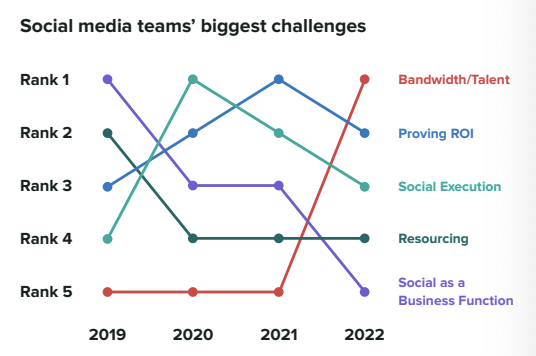

Research your Target audience and appropriate platforms
Once you have defined your objectives, the next step is to understand your target audience. This involves researching your customers and understanding their preferences, behaviors and motivations.
We can go with an example – suppose a Primary school wants to run an advertisement campaign and want to get leads of students.
So can you guess who the target audience is and what platforms will be available to run ads from?
It just like that:-
Audience – Parents who have a child aged 5 – 11 and are looking for a primary school
Platform – Facebook and Instagram
Analyze the competition and competitors’ activities
You need to understand what your competitors are doing, what is working well for them and how can you differentiate yourself? This information will help you to create a strategy that sets you apart from your competitors and appeals to your target audience.
You can analyze Competitors ads of Facebook & Instagram by visit on: – www.facebook.com/ads/library
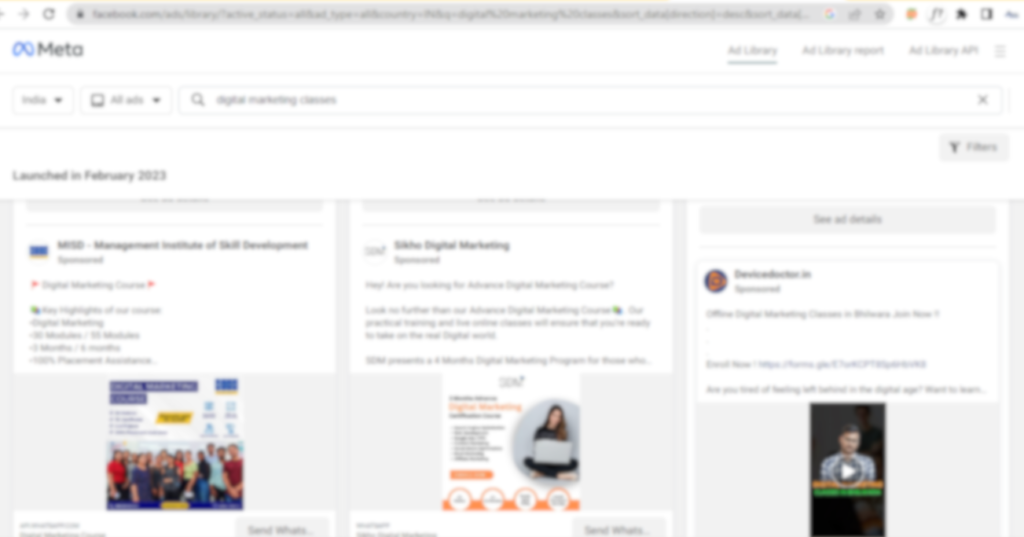

On the basis of high-earning and better results Facebook and YouTube are both prime places for running ads, so you can go with these platforms.
Here are the Platforms where you can run ads according to your Business:-
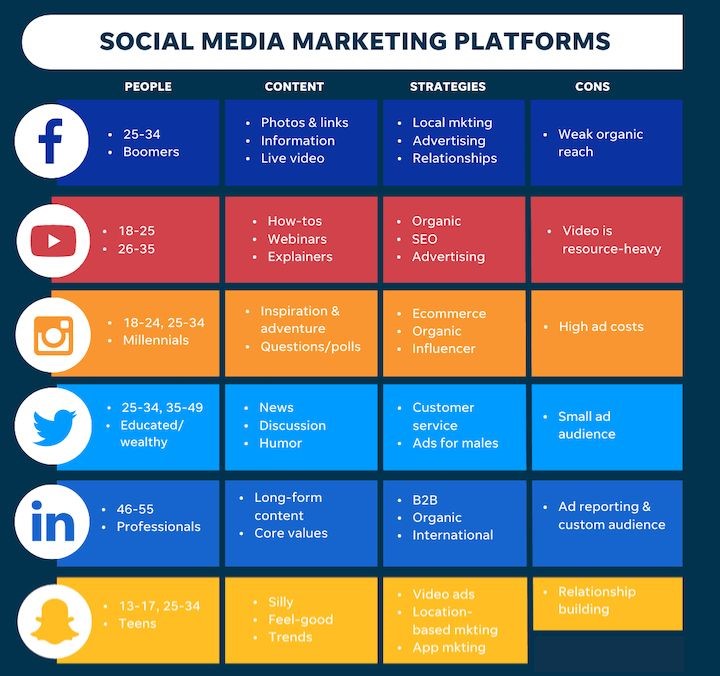

Create engaging content for your Social handles
Your Social Media Strategy is totally depends on your content so it’s your responsibility to create a solid & engaging content strategy.
A solid content plan means that your content should be engaging, informative and relevant to your target audience.
You can use a mix of different content formats, such as images, videos, infographics, and text, to reach your audience in different ways.
Establish your key performance indicators
If a person does not evaluate his work performance from time to time, then his chances of getting better results are very less.
So it is your responsibility to establish your important KPIs and start measuring them.
Here are some matrices that most marketers use to measure their performance.
- Reach
- Engagement
- Video Views
- Audience growth rate
- Click through rate (CTR)
- Cost per Click
- Social media sentiment
- Conversion rate
- Leads generated
Reach – Post reach is the number which shows how many unique users saw your posts. Means how much your content actually reach to unique users.
Engagement – The percentage of people who engaged and interacted with your content
Video views – YouTube counts a view once a video has been watched for a minimum of 30 seconds. On Facebook, a view is recorded after just 3 seconds. For desktop viewing, the video must be fully on the screen before it starts playing, whereas for mobile viewing, it must be displayed at least 50% on the screen.
Audience growth rate – This is a metric which shows that how quickly your followers gained in a certain period. Compare Present followers with past time followers is the best way to measure the audience growth rate.
Click through rate (CTR) – This is a percentage which is measure by how many people click on your content, posts or ad copies upon how many peoples saw your content


Social media sentiment – Sentiment analysis of social media is about finding out what people are saying about your brand on social media. It’s more than just counting the number of mentions or comments. It also takes into account how people feel and what they think about your brand.
Conversion rate – It’s calculated by dividing the number of conversions by the number of visitors to your page. In other words, it tells you how many visitors are actually taking the desired action on your page.
Leads generated – A lead is any contact information of a particular person this can include their name, email address, job, employer or any other detail shared on social media. We have to compare generated leads of present period with the past period for better measurement.
Create a content strategy and schedule it
Starting to Create a Content Strategy Feels like a Big Stress
So let us try to understand with an example-
Suppose you are a B2B business owner and you are doing social media marketing, what would be the strategy to grow your business?
- To educate your B2B audience, publish informative blogs, industry news, and expert opinions.
- If your aim is to promote e-commerce products, share visually appealing photos that showcase the products in use, as well as customer-generated images of them wearing your merchandise
- For a customer-focused approach, share helpful tips, give recognition to your customers, and keep your audience updated with company news.
Scheduling –
Example Schedule:
Monday: Research and planning
Tuesday: Writing and editing
Wednesday: Design and publish
Thursday: Create social media posts promoting
Friday: Monitor and engage with post comments and social media interactions
Monitor and Measure Success
The most common and often important metrics to pay attention to are engagement, impressions and reach, referrals and conversions and response rate.
These combined will give you a 360º view of your social media performance.
To monitor and measure the success of your content strategy, it is important to establish KPIs (Key Performance Indicators) and track them regularly. This will allow you to see what is working well and what needs to be improved.
You can measure your performance with help of analytics tools such as Hootsuit, Sprout social, Google analytics, Buffer, and social media platforms insights.
This is an example of a social media analysis tool “sprout social”
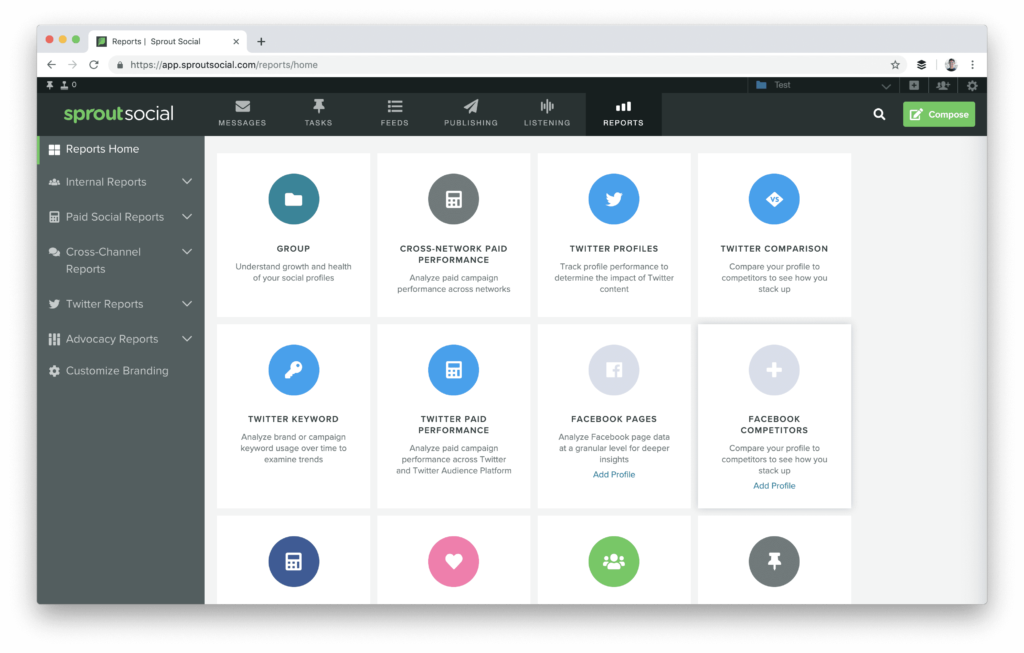

Conclusion:
And in the last make sure that is your marketing strategy future proof or not?
You have to design your strategy according to the future predictions and trends.
If your content will not be according to the future trend then you can’t compete the competition in the era. Make a plan that’s ready for the future. By predicting changes in your industry and being ahead of the competition, you can stay important and successful. So, plan ahead to be ready for what’s next.
Recent Posts
Campaign from Fortune Ports Play Campaign out of Luck Ports Free
January 21, 2025
1xslots официальный сайт зеркало
January 21, 2025

